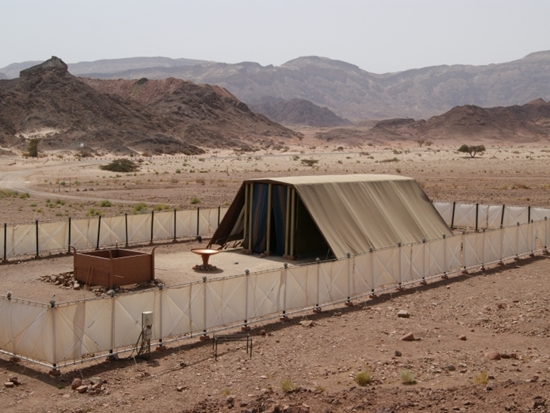The Real Value Of The Mishkan

Replica of the mishkan (tabernacle), as seen in Timna Park, Israel. Photo: Ruk7. CC 2.0
3/15/2024, 5:12:20 PM
This week’s Parshah starts off with an accounting of the materials and monies donated by the Jews for the construction of the Tabernacle. The first verse contains a noticeable and rather perplexing redundancy [Shemot 38’ 21’]:
These are the records of the Tabernacle, the Tabernacle of Testimony, which were drawn up at Moses’ bidding—the work of the Levites under the direction of Ithamar son of Aaron the priest.
The commentaries are bothered by the fact that the Torah repeats the word “Mishkan\Tabernacle” twice in the above verse. Rashi, in addressing the issue, comments that the word “Mishkan” can also be read “Mashkon”–to allude to the fact that over the next thousand or so years, the Mishkan will be taken away from the Jews as a “Mashkon\collateral” for the survival of the Jews, as instead of destruction of the Jewish people G-d forbid, the Beit HaMikdash would be destroyed.
Gur Aryeh [a supercommentary on Rashi written circa. 1550] asks the obvious–the Torah has just spent hundreds of Pesukim describing the building of the Mishkan, and all that went in to it, and finally, at the culmination of the process, when the last details and accountings are being presented to the Jews–the Torah chooses to allude to the eventual destruction of it all. Could a better location have not been found for this allusion?
It would appear to the author that perhaps we can view Rashi’s comment from a different perspective. All would agree that a collateral needs to be a fair representation of a security for the value of a loan–hence, a million dollar loan would require a million dollar security, and so on and so forth. Therefore, when discussing the collateral for the future of the Jewish Nation, such an item would need to be a representation of the worth of the entire a Jewish people–and anything chosen that could in fact be such a representation would be precious indeed!
Thus, the truest way to express the deepest value of the Mishkan would be to highlight that its value was commensurate with the future of the entire nation of Am Yisrael! Logically, then, as the construction and accountancy of the Mishkan is about to come to an end, the Torah seeks to tell us to be aware of how valuable the Beit HaMikdash really was–and the most authentic way to do that is by the Torah stressing that the Mishkan was the security for our Nation’s future.
May we merit to see the removal of all obstacles preventing the construction of the Beit HaMikdash on Mt. Moriah speedily in our days!